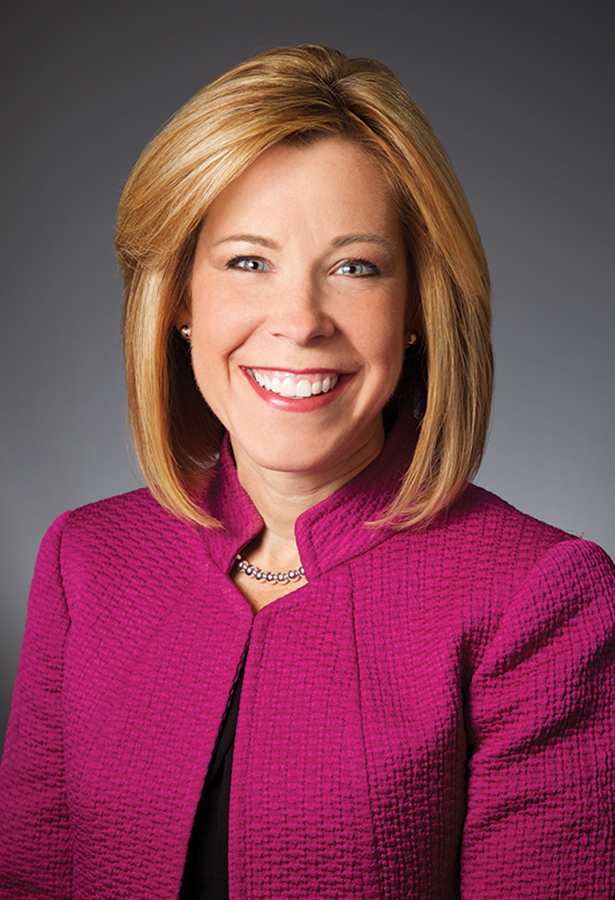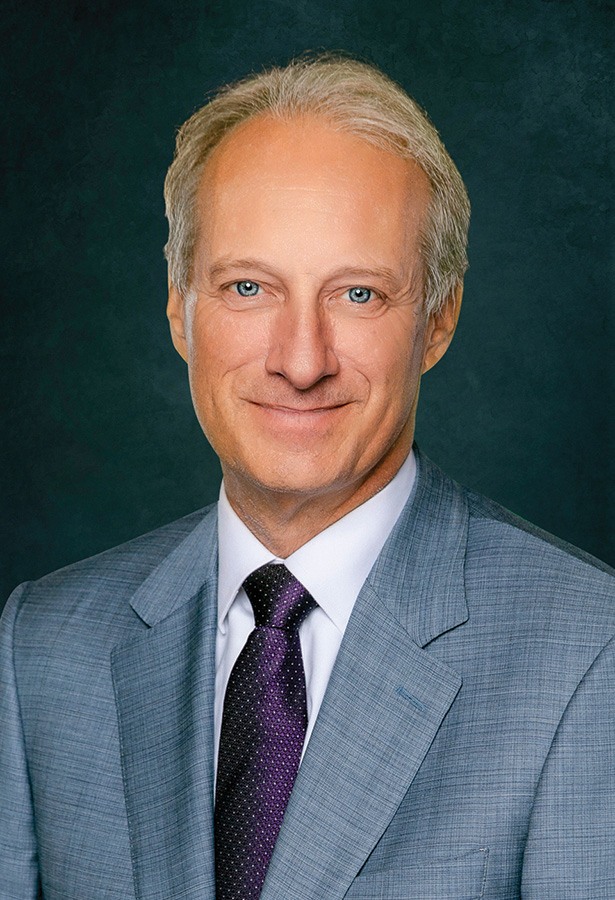Following the 2024 elections, Decision asked two of the world’s top attorneys working in the area of religious freedom—Kristen Waggoner of Alliance Defending Freedom (ADF) and Kelly Shackelford of First Liberty Institute—what they expect to see in regard to religious freedom and other issues under a new administration and Congress.
Q: What do you expect to see over the next two to four years?
Shackelford: The first big thing is judges. Federal judgeships are lifetime appointments, so one judge could affect cases for the next 30 years. And if you end up appointing 234 judges, which is what happened during President Trump’s first term, you’re affecting a lot of cases. So it’s really important that the judges you put on the court are people who are committed to following the Constitution and are committed to religious freedom, or you’ll get decisions that don’t reflect that.
A year and a half ago, we had four religious liberty wins at the U.S. Supreme Court in a 13-month period. And three of them were what I would call landmark religious freedom cases, literally shifting 50 years of case law away from hostility to religion to advancing religious freedom. That shows what happens when you put good judges on the court.

Second, President Trump did more for religious liberty in his first term than anybody in the history of the country. There were executive orders, and beyond that, he created an office within the Department of Health and Human Services to protect freedom of conscience and religion in the health care industry. And the Department of Justice had a task force that went to every department and agency to make sure they were informed about laws that protect religious freedom. But many of those things were dumped as soon as the Biden administration came in. The low-hanging fruit is to bring those things back again.
Waggoner: ADF continues to pursue three top priorities, and we hope the new administration will put them front and center:
First, defeating the censorship regime that overwhelmingly targets Christians and conservatives. More and more Americans have faced discrimination by government, banks and social media platforms because they have dissented from the leftist ideology of the elites. We must end the collusive relationship between government, Big Tech, Big Finance and corporate media that creates an ideological monoculture eager to punish people for their beliefs.
Second, reversing the Biden administration’s policies that advance the lie of gender ideology at the expense of parental rights, our children and the rights of women and girls.
Third, strengthening the rule of law by appointing outstanding federal judges while rolling back the overreaching power of the regulatory state.
Q: What kind of response might we have seen if the elections had gone the other way?
Waggoner: A Harris-Walz administration would have directly targeted many of our constitutional freedoms. Both Kamala Harris and Tim Walz indicated that they would pressure social media companies to silence dissenting views by labeling them “misinformation.” They would have continued the effort to entrench gender ideology in daily life through abuses like the Title IX mandate on schools—even as gender ideology is collapsing under the weight of scientific evidence in Europe and losing public support in the U.S. In addition, they would have pushed the Senate to break the filibuster to pack the Supreme Court and advance a law that would have eliminated constitutional protections for the judiciary, and advocated passage of a national abortion-on-demand law. Harris even suggested that religious doctors and medical providers should not be able to opt out of performing abortions due to their beliefs—an unprecedented position for a presidential candidate.
Shackelford: The government was being weaponized to attack religious freedom in a number of different scenarios. Look at what they did in abusing the law when it came to the vaccine mandate, and what they were trying to do to people of faith in the military. We won a federal lawsuit and stopped it, but if we had not gotten that injunction, they were going to remove somewhere between 50,000 and 80,000 military families because they were people of faith who had objections. There’s federal law protecting those people, but the government just blatantly violated that law.
I mentioned our Supreme Court victories; the Trump administration filed briefs supporting religious freedom in those cases, but the Biden administration filed briefs against the religious freedom side.
Title IX is another example. This great law was supposed to protect women in sports, but the Biden administration redefined the word sex to where it was doing the opposite.
Q: What types of cases might you see fewer of in the near future?
Shackelford: They’re not going to create the kind of conflicts and attacks on religious freedom we’ve seen recently. And Trump has already announced that one of the things they’re going to do is to expose every agency that was pressuring tech companies to censor people. They’re pulling the cover off this thing, so you can see that it’s a totally different direction.

Waggoner: Much of our litigation against the federal government has been a response to the Biden administration’s overreach. With the Trump administration returning, we can expect a friendly DOJ that doesn’t line up on the opposing side of key national cases.
With roles now flipped, we can expect a flurry of new cases filed by progressive states and activists against the incoming administration. They will challenge President Trump’s efforts to protect women, stop censorship and rein in the administrative state. They will also continue their efforts to harass and discriminate against conservatives at the state level—for example, targeting pro-life pregnancy centers. In left-wing strongholds, we can expect further attacks on ministries that wish to operate according to their convictions, religious health care providers that seek to serve and support women, and parents who seek to raise their children consistent with their own values.
Women and girls in left-wing enclaves will still have to fight for their rights to athletic fairness and safety as well as privacy in intimate facilities. The new administration represents a reprieve at the federal level, but these battles are by no means over. Authoritarian ideologies that oppose freedom of speech, freedom of conscience, and that embrace radical gender ideology are going nowhere, and ADF expects to be busier than ever.
Q: What does it mean to “dismantle the administrative state,” and do you think it will happen?
Shackelford: Whether it’s people having their land taken or their small business getting crushed, many times it’s not because of a law that was passed by Congress; it’s some bureaucrat, who’s not elected, coming up with a new regulation and having power that can destroy people’s lives. Now, that power took a big hit in a Supreme Court decision that came down this last year called Loper. The court said that if there’s an ambiguity about a statute, we’re not going to defer anymore to these agencies and their bureaucrats.
Add to that the announcement that Elon Musk and Vivek Ramaswamy are going to be in charge of a Department of Government Efficiency. They’re going to cut a lot of fat and bureaucracy. I think you’re going to see that the administrative side is going to shrink and their power is going to lessen.
Waggoner: First, this means that federal bureaucrats should stop micromanaging every small business, religious ministry and family in the country. Eliminating bureaucratic overreach will free Americans to live without fear of federal interference or hostility when they speak their conscience, raise their children in line with their beliefs, and operate their ministries according to Biblical truth—including teachings about marriage, sexuality, gender and the unborn.
Second, it means that agencies will stay within their legal authority. Lawmaking belongs to Congress, not unelected bureaucrats. Yet too many agencies usurp the role of Congress and become law unto themselves. One egregious example of this is a Biden rule that would deny foster and adoption rights to people in all 50 states if they don’t hold to pro-LGBTQ beliefs. This is the kind of rule the new administration should promptly reverse.
Third, dismantling the administrative state means weeding out federal employees who resist and undermine efforts to make the federal bureaucracy accountable to the Constitution and to the American people. Career bureaucrats should be given the choice to assist President Trump’s efforts or leave. Moreover, his appointees should seek to reform or abolish agency programs that are bloated, wasteful or morally corrupt.
President-elect Trump has shown more seriousness about tackling the challenges posed by the administrative state than any other president in memory. The jury will be out until it is accomplished. Expect a full-court press against these efforts from the media.
Q: What is the outlook for Christian organizations and religious employers?
Waggoner: Protecting religious employers is an area of urgent need. In some states, religious ministries have been barred from exclusively hiring people who adhere to the ministry’s beliefs. This is a glaring violation of religious liberty. How can ministries fulfill their calling if they can’t hire like-minded employees? ADF has intervened in multiple states that have sought to force ministries to compromise their hiring standards and their beliefs.
The new administration can and should side with religious employers in these cases. It should also expunge the many regulations put in place during the Biden-Harris administration that impose a burden on religious organizations to violate their beliefs.
Government agencies over the last few years have tried to force Christian colleges to let men into women’s dorms and denied Christian K-12 schools access to a federal school lunch program over their beliefs on marriage and gender. These policies must be reversed.
Shackelford: Every Christian organization should look clearly at what the Lord is leading them to do in their ministry, and operate without fear that the government is going to restrict the right to do that—because they can’t. There are exemptions from major federal laws that make clear that regulations in a particular area do not apply to religious organizations. Those are going to be respected. So, there’s going to be freedom for any religious organization to meet its mission.
Q: What are some of your current cases that could have wide-ranging impacts?
Shackelford: At First Liberty, we have two cases on the way to the Supreme Court, one of which will involve religious freedom in the workplace, which could have major implications. But perhaps the biggest thing is the battle over who has authority over children—parents or the government. We’ve got school districts that are propagandizing kids, and they’re telling the teachers “You’re not to tell the parents.” California even has a law that prohibits them from telling the parents if a student has questions about their sexuality. There’s no doubt in my mind that this new administration will stand on the side of parents.
Waggoner: ADF currently has six cases we are asking the Supreme Court to review. Two of them, State of West Virginia v. B.P.J. and Little v. Hecox, deal with women’s sports and could potentially lead to a landmark ruling that allows states to protect female sports from male intrusion. In L.M. v. Town of Middleborough, we are defending the right of a middle-school boy to wear a T-shirt that says “There are only two genders.” In Chiles v. Salazar, we are challenging Colorado’s counseling censorship law, which prevents children struggling with gender dysphoria from getting the help they need to live at peace with their bodies. In Kerr v. Planned Parenthood, we are defending South Carolina’s decision to defund Planned Parenthood as part of the state’s Medicaid program. And in Drummond v. Oklahoma Statewide Charter School Board, we are defending the nation’s first-ever religious charter school, which was discriminated against by the state simply because of its religious character. ©2024 BGEA
Interviewed by Bob Paulson, editor.
Photo: Alliance Defending Freedom
